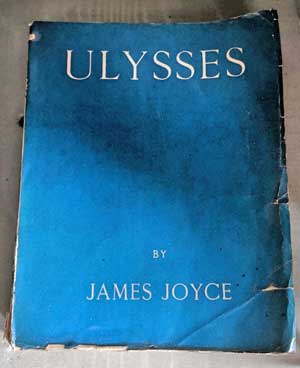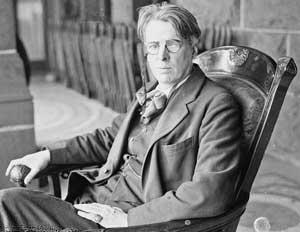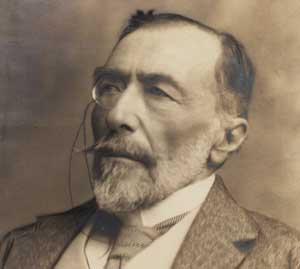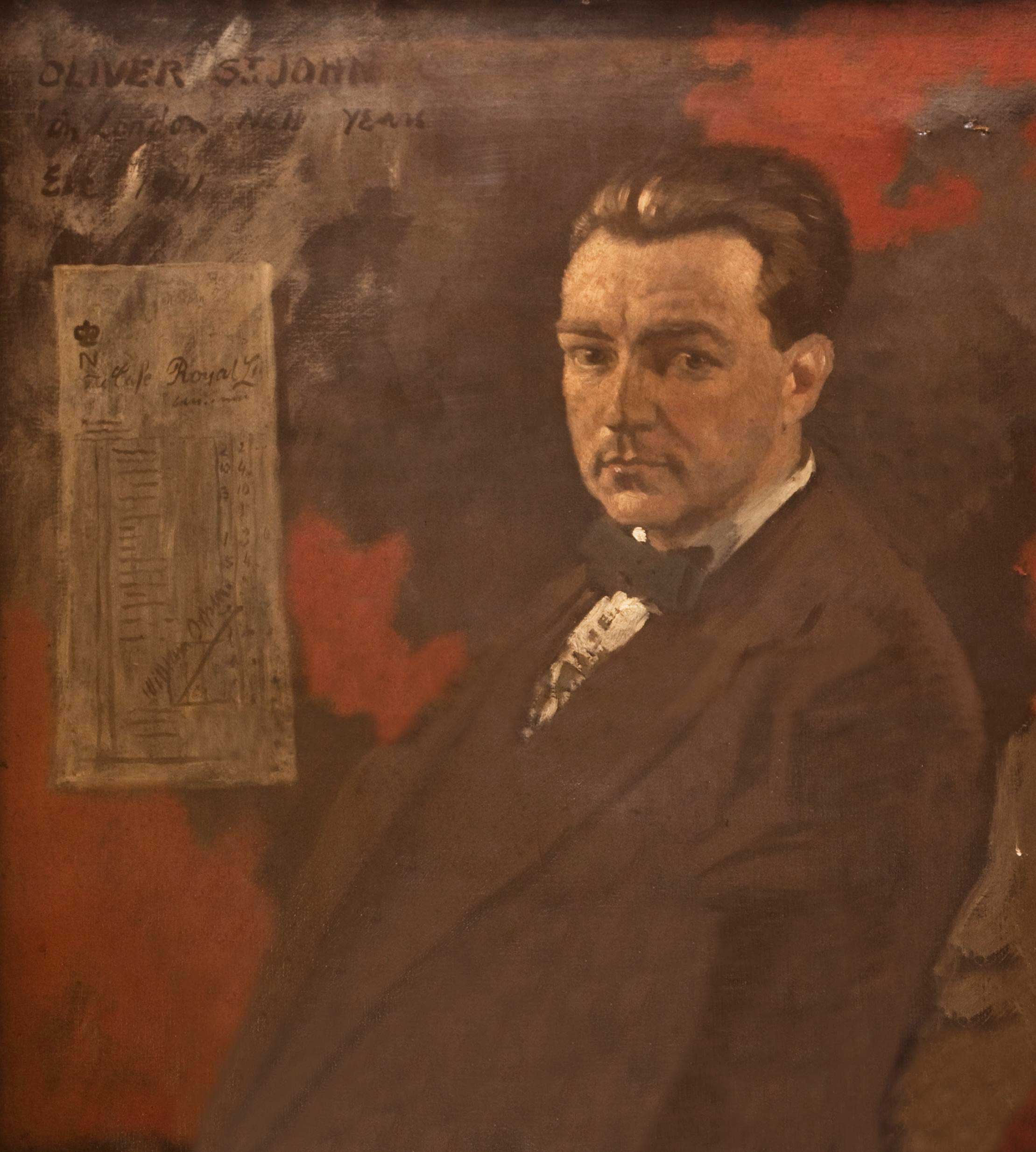By Daniel Mulhall

When the Swedish Academy announced its 1923 Nobel Prize for Literature, it opted for a writer who had produced what it described as ‘always inspired poetry, which in a highly artistic form gives expression to the spirit of a whole nation’. The poet’s name was William Butler Yeats and his nation had the previous year achieved a measure of self-government as the Irish Free State.
‘REPRESENTATIVE OF A LITERARY MOVEMENT AND A NATION’
Yeats himself recognised the wider context in which he was being honoured—‘as a representative of a literary movement and a nation’ and as ‘part of Europe’s welcome to the Free State’. In lauding Yeats, the Academy probably had in mind what I call Yeats’s ‘history’ poems, which he wrote during the preceding decade—‘September 1913’, ‘Easter 1916’, ‘Nineteen Hundred and Nineteen’ and ‘The Second Coming’—in addition to his role as the chief force behind the Irish literary revival of the 1890s, when he had devoted enormous effort to the creation of a national literature for Ireland.
Yeats learned of his success one night in November 1923 when he was telephoned by Bertie Smyllie, an Irish Times journalist and future editor of the paper, who was asked by the then editor, John Healy, to inform Yeats about the award and to record his response. His reaction, demonstrating that he had down-to-earth preoccupations alongside his more ethereal ones, was ‘And tell me, Bertie, how much is it worth?’ The answer was £7,000, a tidy sum in the early 1920s, the equivalent of some €400,000 today. Yeats and his wife George celebrated with a plate of sausages, having failed to find a bottle of wine in their cellar!
When the news broke, Oliver St John Gogarty described the award as ‘the most significant thing that has befallen this country’—which was saying a lot, considering that it had just attained independence. Historically, Gogarty argued, Ireland had not been accepted ‘into the comity of nations’, but the Swedish Academy’s decision had changed all of that and Ireland’s civilisation would in future be judged by Yeats’s achievements. The novelist Joseph Conrad, who must have harboured hopes of being honoured for his influential novels, also saw Yeats’s prize as ‘a literary recognition of the new Irish Free State’.
TRAVELLED TO STOCKHOLM
Although the Academy had offered to send his prize to him through the Swedish Embassy in Dublin, Yeats and his wife, George, set out for Stockholm in early December 1923, where the coveted prize was conferred on this almost ‘sixty-year-old smiling public man’ by King Gustav V at a ceremony on 10 December. In making this journey, he would be the last Irish writer to appear in person at a Nobel ceremony until Seamus Heaney collected his prize in 1995. George Bernard Shaw’s award was picked up for him by the British ambassador and Samuel Beckett’s by the French envoy in Stockholm.
Yeats was charmed by the Swedish royal family—the king ‘intelligent and friendly’, and Princess Margaretha ‘full of subtle beauty, emotional and precise’. Admiration for its royal family made him compare Sweden favourably with countries where ‘every democratic dream had been fulfilled’, an observation that reflected Yeats’s growing anti-democratic leanings.
A TIME OF GREAT ACHIEVEMENT FOR IRISH LITERATURE
Yeats’s award came at a time of great achievement for Irish literature. Joyce’s Ulysses had been published almost two years before, while Seán O’Casey’s first great play, The Shadow of a Gunman, premiered at the Abbey Theatre in April 1923. Yeats himself was in full creative flow. In 1921 he had published Michael Robartes and the Dancer, which contained two of his greatest history poems, ‘Easter 1916’ and ‘The Second Coming’, and had recently written ‘Meditations in Time of Civil War’, with its trenchant probing of revolutionary Ireland:

‘We had fed the heart on fantasies, The heart’s grown brutal from the fare; More substance in our enmities Than in our love; O honey-bees Come build in the empty house of the stare.’ At the award ceremony, Yeats spoke about the Irish literary movement:
‘Thirty years ago a number of Irish writers met together in societies and began a remorseless criticism of the literature of their country. It was their dream that by freeing it from provincialism they might win for it European recognition.’
Per Hallström, chairman of the Nobel Committee of the Swedish Academy, spoke perceptively about the poet’s achievement, noting that:
‘Yeats’s association with the life of a people saved him from the barrenness which attended so much of the effort for beauty that marked his age. Around him as the central point and leader arose, within a group of his countrymen in the literary world of London, that mighty movement which has been named the Celtic Revival and which created a new national literature, an Anglo-Irish literature.’
Yeats called his Nobel lecture, delivered on 15 December 1923, ‘The Irish Dramatic Movement’. In it, he sought to claim his share of the credit for the coming of Irish independence by highlighting the role played by the literary movement that he had come to personify. Here is part of his opening salvo:
‘The modern literature of Ireland, and indeed all that stir of thought which prepared for the Anglo-Irish War, began when Parnell fell from power in 1891. A disillusioned and embittered Ireland turned away from parliamentary politics: an event was conceived and the race began, as I think, to be troubled by that event’s long gestation. Dr Hyde founded the Gaelic League, which was for many years to substitute for political argument a Gaelic grammar, and for political meetings village gatherings, where songs were sung and stories told in the Gaelic language. Meanwhile I had begun a movement in English, in the language in which modern Ireland thinks and does its business; founded certain societies where clerks, working men, men of all classes, could study those Irish poets, novelists, and historians who had written in English, and as much of Gaelic literature as had been translated into English.’
This is an example of Yeats’s ability to put his own spin on Ireland’s recent history. In his view, the ‘stir of thought’ of the 1890s, of which literary revival formed part, had radicalised Ireland, unleashing forces that helped deliver Irish independence in 1922. Those were not new Yeatsian ideas conjured up to please his Swedish audience. He had been banging the drum about Parnell’s fall giving space for the emergence of cultural movements since shortly after the death of Ireland’s ‘uncrowned king’ in October 1891. Parnell’s demise prompted Yeats to set about establishing the Irish Literary Society in London and the National Literary Society in Dublin, both set up in 1892. Yeats’s thesis has been challenged during the intervening decades. His official biographer, Roy Foster, has suggested that the actions of politicians and agitators were probably more influential than the cultural movements. I think we can say, however, that the fin-de-siècle cultural ferment generated by the GAA, the Gaelic League and the literary revival changed mentalities in Ireland, creating a distinctively Irish belle époque.
IRELAND’S ‘URGENT PRESENT’

Yeats’s Nobel Prize sealed his international fame. A.C. Benson, author of the English patriotic panegyric ‘Land of Hope and Glory’, was one of the many prominent individuals who wrote to Yeats from Cambridge, praising him for his ‘detachment from the urgent present’, which had brought him into line ‘with the great spirits of the past and future’. As it happens, Yeats’s achievement actually derived from his ability to attach himself to Ireland’s ‘urgent present’ while at the same time reflecting on its past and trying to envision its future.
Being a Nobel laureate did not make Yeats rest on his laurels. Indeed, when you look at his output between 1923 and his death in 1939, there is a sense in which his Nobel Prize was as much a beginning as an end. It is arguable that his greatest works were written during those years—‘Meditations in Time of Civil War’, ‘Among School Children’, ‘The Tower’, ‘In Memory of Eva Gore Booth and Con Markievicz’, ‘The Circus Animals’ Desertion’ and ‘The Municipal Gallery Revisited’, among others.
Another notable aspect of Yeats’s life after 1923 is how much time he spent in Ireland. He was a diligent member of the Irish Senate, attending some 60% of its sessions, and continued to delve into the history of his own time with late-life poems about Parnell, Roger Casement and The O’Rahilly, who was killed during the Easter Rising. As a world-renowned poet, there were other options available to him, but he chose to throw in his lot with the fledgling Irish Free State, whose prospects were uncertain given the deeply troubled circumstances of its early years. It has to be said that he also had unfortunate flirtations with Blueshirt fascism and eugenics, which did not reflect well on his judgement.
In his valedictory poem ‘Under Ben Bulben’, he revived his youthful faith in the Gaelic past, insisting that ‘ancient Ireland knew it all’ and recalling ‘the lords and ladies gay’
‘That were beaten into the clay Through seven heroic centuries’.
He urged his compatriots to take inspiration from the past as they navigate coming times:
‘Cast your minds on other days That we in coming days may be Still the indomitable Irishry’.

Yeats was a consistently perceptive witness to the Ireland of his time, a time of revolutionary upheaval and political transformation. As the passage of time distances Irish people from that formative, pre-independence era, Yeats’s insights will likely become ever more important as a guide to that period in Irish history, just as Shakespeare is an outstanding resource for an understanding of Elizabethan England. With his national significance in mind, and as our Decade of Centenaries draws to a close, I would like to see a greater effort being made to commemorate Yeats’s historic legacy. For that reason, I have suggested the setting-up of a Yeats branch of the National Library in Sligo as a permanent memorial to Yeats’s contribution to the Ireland of his time and ours.
Daniel Mulhall is Resident Fellow (Fall 2023) at the Institute of Politics, Harvard University, and former Irish Ambassador to the USA.
Further reading
- Aldritt, W.B. Yeats: the man and the milieu (London, 1997).
- Cullingford, Yeats, Ireland and fascism (London, 1981).
- Norman Jeffares, W.B. Yeats: a new biography (London, 1990).
- Mulhall, Pilgrim soul: W.B. Yeats and the Ireland of his time (Dublin, 2023).
